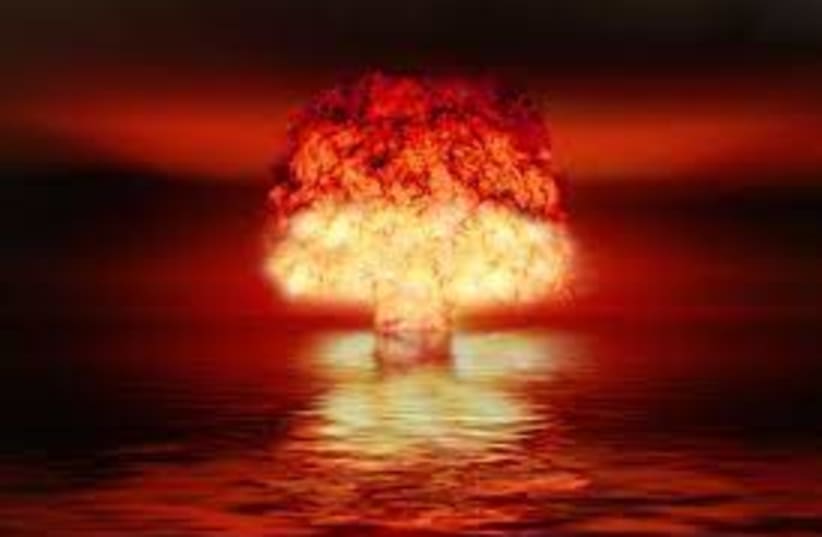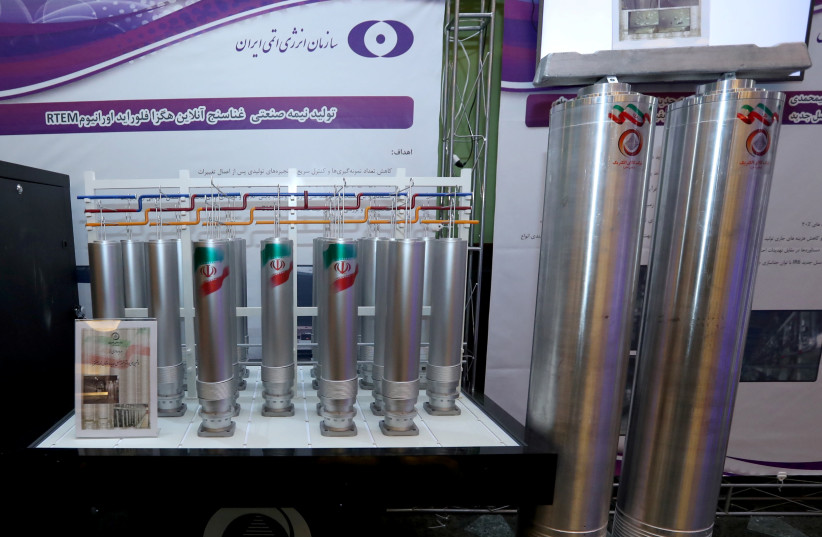Top Israeli sources confirmed to The Jerusalem Post what has only been hinted at until now, that Jerusalem is banking on a mix of global pressure and a two-year breakout time it believes Iran would need to master nuclear weapon detonation and delivery, which means that a large-scale attack on Iranian nuclear facilities is not likely in the cards, even to prevent Tehran from crossing the threshold of 90% weaponized uranium enrichment.
Nuclear detonation refers to a specialized process required to achieve an atomic bomb detonation which differs from standard explosives, while nuclear delivery refers to unusual adaptations needed to be made to a ballistic missile for it to carry a nuclear warhead.
The Islamic Republic has been enriching uranium to the very high 60% level since April 2021 and had enough low-enriched uranium for a nuclear weapon, if enriched to higher levels, as early as March 2020.
For years, prime ministers Benjamin Netanyahu, Naftali Bennett and Yair Lapid have been willing (if uneasy) to live with Iran's Supreme Leader Ayatollah Ali Khamenei approaching the nuclear threshold.
However, Iran has avoided jumping to the 90% weaponized level, either because of Israeli military threats or US or broader Western economic threats.
Not enough action taken to prevent 90%
In multiple speeches to the UN around a decade ago, Netanyahu suggested that Israel would attack before letting Iran cross the 90% threshold – a commitment that should perhaps have been carried out in 2020-2021 at the 60% level.
Likewise, US officials have told the Post that an Iranian move to cross the 90% threshold would be a game-changer in terms of American policy.
Yet, before Netanyahu left office in mid-2021, it was already estimated that Khamenei could order a breakout and cross the 90% threshold within two months.
Instead of ordering a broad preemptive airstrike, the Post understands that top Israeli political and defense establishment officials decided on a current strategy that mixed smaller covert operations with attempts to convince the US to maintain sanctions.
Many top Israeli officials also still expect a return to the 2015 JCPOA which would lead Iran to seriously reduce its nuclear enrichment and centrifuge violations, and delay concerns about crossing the 90% line at least until late 2025.
Though most top Israeli officials oppose a return to the JCPOA, their expectation that it will happen anyway seems to have reduced the pressure to mount a preemptive strike.
All of these elements combined mean that it is very unlikely in the present context that Israel would launch a preemptive strike to block Khamenei from crossing the 90% level if Khamenei made that decision.
Yet, ironically, Israeli officials view allowing Iran to cross the 90% line as an existential threat.
It is remarkable too that Israel’s estimate of two years to master skills – like detonation and delivery– has remained unchanged now for several years.
In 2018, the Mossad seized Iran’s nuclear archives, bringing to light massive amounts of new information about its experiments with nuclear weapons development and some of its more recent activities in that regard.
However, since then, Israeli defense officials have said that the Islamic Republic has not progressed in a way that would shorten the two-year gap.
This is surprising in some ways because Tehran has continued to experiment with ballistic missiles and satellite launches nonstop – something which intelligence officials in both the US and Israel agree could advance nuclear weapons delivery capabilities.
In addition, some nuclear experts have speculated that Iran may have covert groups working on these other nuclear skills which the Mossad and CIA have not caught on to.
Despite any above-mentioned progress and speculation, the Post has recent confirmation that the clear Israeli opinion remains that the two years to master these other nuclear skills has not been reduced.

